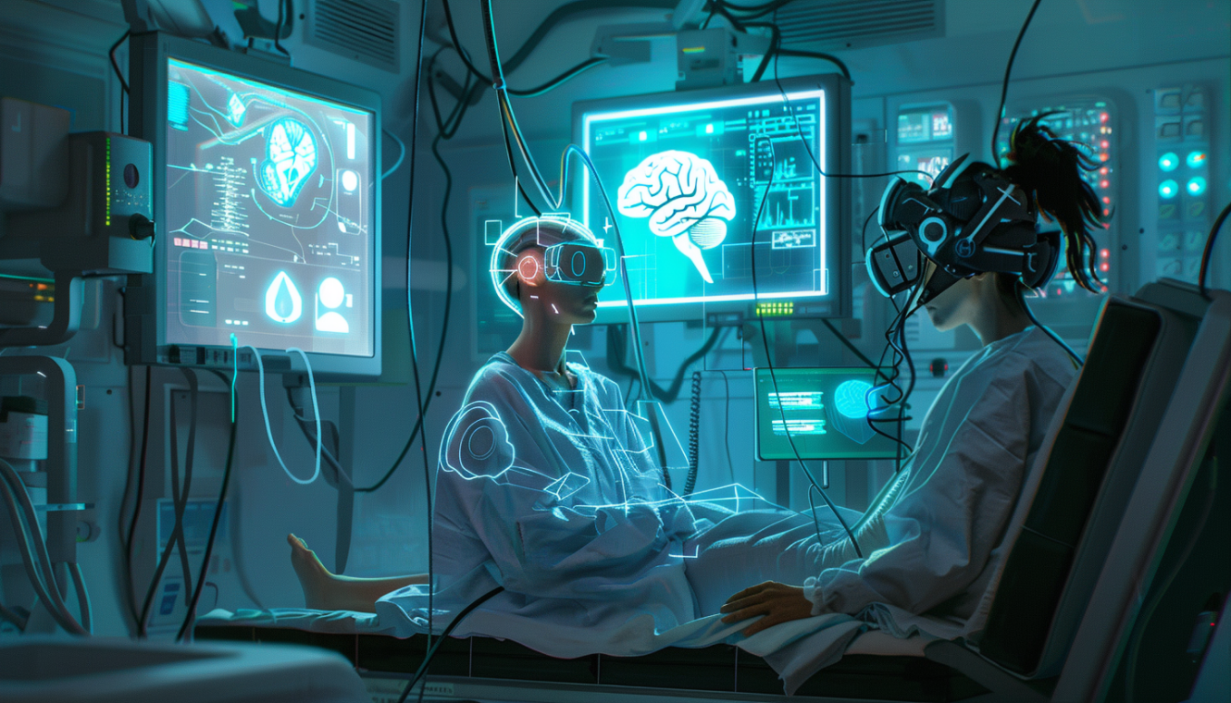OpenAI and Synchron, Helping Patients Chat Again
By Olivier Acuña | TH3FUS3 Chief Editor
July 16, 2024 09:10 AM
Reading time: 2 minutes, 13 seconds
TL;DR Patients with severe neurological conditions like ALS can communicate more naturally using generative AI. Synchron has integrated OpenAI's technology into its brain-computer interface, enabling context-aware messaging through thought. This development offers new hope for patients with severe motor impairments.

Patients suffering from severe neurological conditions, such as Amyotrophic Lateral Sclerosis (ALS), may now be able to chat with their loved ones again with the help of generative AI.
Last week, neurotechnology company Synchron announced it had integrated tech from OpenAI to bring generative AI into its brain-computer interface (BCI) program. This development would allow users with severe motor impairment to send more contextually-aware messages using their thoughts.
OpenAI's multimodal GPT models will provide Synchron's interface with context-aware responses when a patient receives a text or is spoken to. This will result in more natural and real-time human-AI interactions.
A video posted by Synchron shows Mark, a patient suffering from severe ALS, using the BCI to reply to text messages from his doctor. By using his mind to interact with a ChatGPT-enabled platform, Mark can maintain a conversation with his doctor, arrange an appointment booking, and describe his current pain levels.
Synchron said the feature would be utilized primarily by patients with severe paralysis who had lost the use of their upper limbs to interact hands-free with the world around them.
"This is critical for individuals with neurological disorders, who may otherwise have trouble generating complex responses contextual to their environment," said Synchron.
"As someone who will likely lose the ability to communicate as my disease progresses, this technology gives me hope that in the future, I'll still have a way to connect with loved ones easily. This will be a game changer," said Mark, a person living with ALS who uses Synchron's BCI platform.
Synchron's Innovative Approach
Founded in 2012 and backed by billionaires Bill Gates and Jeff Bezos, Synchron is developing an implant that allows people to interface with computers and other technology, similar to Elon Musk's Neuralink. However, Synchron claims its implant is installed via a "minimally invasive" surgical procedure. The procedure consists of inserting the tiny device through the jugular vein in the neck, which then moves the device to a blood vessel on the surface of the patient's brain's motor cortex.
Once the device has been implanted, it wirelessly detects and transmits "motor intent" from the brain. This allows paralyzed users to control devices with their minds.
The Competitive Edge
Neuralink's brain chip is currently implanted through surgery, which involves opening a small section in the patient's skull and using a surgical robot to implant it in the brain region that controls movement intention.
On May 13, Neuralink unveiled footage of the first human patient to be implanted with a Neuralink chip: 29-year-old quadriplegic Noland Arbaugh, who controlled the cursor of a computer and played games like Civilization V using only his mind.



